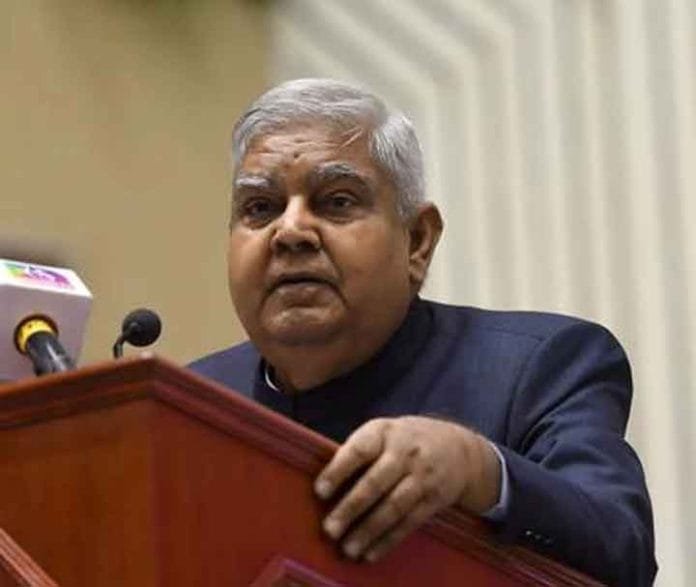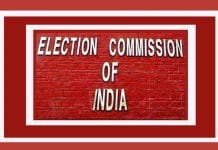In a significant political development, Vice President Jagdeep Dhankhar’s resignation has set the stage for the Vice President Election 2025. The Election Commission of India (ECI) is expected to initiate the constitutional process to elect the next Vice President, following an official notification from the Union Home Ministry acknowledging the resignation. Despite the looming vacancy in the country’s second-highest constitutional office, the government appears to be in no rush to push for immediate elections during the current Parliament session.
President Murmu Accepts Resignation; Official Notification Issued
On Tuesday morning, President Droupadi Murmu formally accepted Jagdeep Dhankhar’s resignation from the post of Vice President of India. The Union Home Ministry followed swiftly, publishing the notification in the official gazette. This formal step cleared the way for the Election Commission to begin preparations for the election of a new Vice President.
The resignation automatically vacated the ex-officio position of the Chairman of the Rajya Sabha, which is held by the Vice President. This has created a functional void in the Upper House of Parliament, now presided over by Deputy Chairman Harivansh Narayan Singh.
No Farewell, No Speech: A Silent Exit from Rajya Sabha
Tuesday’s Rajya Sabha proceedings began as scheduled at 11:00 AM, led by Deputy Chairman Harivansh. Vice President Dhankhar was notably absent and did not participate in the session. There was no formal farewell address, nor any ceremonial acknowledgment of his tenure. BJP MP Ghanshyam Tiwari, who was presiding, informed the House that the resignation had been accepted and read the notification aloud.
What surprised many across party lines was Dhankhar’s decision not to deliver a farewell speech, breaking a long-standing tradition for dignitaries exiting constitutional positions. Speculation suggests this lack of formality might have been deliberate—an indication that the government was aligned with or even supportive of his exit.
Behind the Resignation: The Controversial Justice Yashwant Verma Notice
According to high-level sources, the actual trigger for Dhankhar’s sudden resignation appears to be his acceptance of an opposition-backed impeachment notice against Justice Yashwant Verma in the Rajya Sabha. The government reportedly disapproved of this decision, viewing it as a move that could undermine its strategy in the Lok Sabha, where a more bipartisan notice had been planned.
The Rajya Sabha notice—lacking any signatures from ruling party MPs—was interpreted by the government as an opposition tactic to corner it. This surprise development not only embarrassed the ruling party but also caused internal discord. The government, seeking to present a unified and balanced approach, had strategized to move impeachment proceedings from the Lok Sabha, where the proposal carried signatures from both ruling and opposition benches, including Leader of Opposition Rahul Gandhi.
Government’s Cautious Strategy: No Rush to Hold Vice President Election
Although Article 68(2) of the Indian Constitution mandates that a vacancy in the post of Vice President should be filled “as soon as possible,” it does not specify a strict timeline like it does for the post of the President. As a result, the Modi government is not expected to expedite the election process during the current Parliament session.
This gives the government some breathing room to weigh its options. Strategic political calculations are underway, and potential candidates are being vetted in closed-door discussions. Holding the election during a less politically volatile session might benefit the ruling coalition in securing a favorable outcome.
Impeachment Politics: Opposition’s Tactical Play Backfires
Sources within both Houses of Parliament confirm that the opposition had strategically selected the Rajya Sabha to file its notice against Justice Verma without NDA participation. Their intent: to increase pressure on the ruling alliance, especially since the Justice Shekhar Yadav impeachment notice filed in December 2024 has still not been addressed by the government.
What followed was a counter-move from the BJP: an internal plan to collect signatures from Rajya Sabha MPs to blunt the opposition’s strategy. The resulting political chess game led to confusion within the BJP’s ranks and discomfort in government corridors. Dhankhar’s acceptance of the notice—without aligning with party strategy—was perceived as disruptive, prompting his quiet but consequential exit.
Post-Resignation Arrangements: Life After Vice Presidency
Following his resignation, Jagdeep Dhankhar must vacate the official Vice President’s residence. However, under standard government protocol for former high-ranking constitutional officials, he will be allotted a government bungalow in Lutyens’ Delhi. Security arrangements will continue as per the established norms, although his formal responsibilities in public office are now concluded.
No Government Tribute, Only a Formally Worded Acknowledgment
Prime Minister Narendra Modi, known for his eloquent farewell speeches to outgoing dignitaries, offered only a formal acknowledgment of Dhankhar’s service. No personalized tribute or official farewell was organized, reinforcing the perception that the government had distanced itself from the Vice President in his final days in office.
Notably, this contrasts sharply with the opposition’s respectful praise for Dhankhar’s role, despite their prior moves to initiate a no-confidence motion last year, alleging bias in his conduct.
What Lies Ahead: The Search for India’s Next Vice President
As political circles buzz with speculation, several names are being floated for the next Vice President. Insiders suggest the BJP may seek a consensus candidate from among regional allies or respected former bureaucrats, to avoid political friction in the Rajya Sabha.
Key figures currently under consideration reportedly include:
Rajnath Singh, though his importance in the Cabinet may rule him out.
Sushil Kumar Modi, a seasoned BJP leader from Bihar.
Anandiben Patel, the Governor of Uttar Pradesh.
Nirmala Sitharaman, if the government opts to elevate her to a constitutional post.
On the opposition side, no official name has emerged, though parties are likely to rally behind a symbolic figure to challenge the BJP’s ideological hold.
Conclusion: A Critical Constitutional Crossroads
The Vice President Election 2025 will be more than just a procedural transition. It reflects a delicate interplay of strategy, dissent, and power politics. With Jagdeep Dhankhar’s silent departure marking an unexpected twist in the political narrative, the upcoming election holds national significance—both as a test of government cohesion and opposition unity.
As the Election Commission gears up to announce the timeline, all eyes will remain on the Centre’s next move. Will it delay the elections for political convenience, or push ahead with a candidate who can steer the Rajya Sabha impartially? The answer to that will define not just the parliamentary balance but also the democratic character of the Indian republic in 2025.
















